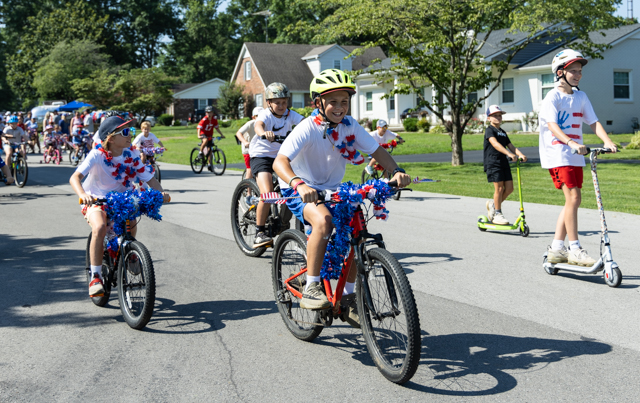Anxious or angry over election? How you can channel that energy against our divisions.
Published 12:00 am Wednesday, November 4, 2020
You may be anxious or angry over the election.
But have you given any thought to what you’ll do the day after?
This election season, along with the pain of the coronavirus pandemic, has revealed that our divisions as a society only go deeper. Where there used to be signs that many people separated politics and personal relationships, we seem ever more wrapped up in the disagreements that define us vs. them.
That’s not going to end when results come out. Many of our leaders are incapable of bridging the gap or unwilling to even try.
So, what’s your plan to do your part?
A year ago, the Pew Research Center found that the polarized parts of the American electorate had deepening animosity to their counterparts on the other end of the spectrum. It’s doubtful that’s gotten better in a year with a presidential impeachment, a pandemic, a recession and a national campaign.
The incredible voter turnout is a solid foundation on which to build. Voters are willing to participate. And that’s a start to healing our rifts, psychologist Tania Israel said.
“The best way to manage my anxiety about elections is to get involved, do something useful for candidates or causes I support,” said Israel, a professor of counseling psychology at the University of California, Santa Barbara. She studies and promotes ways to have useful political dialogue, which she outlined in her book “Beyond Your Bubble: How to Connect Across the Political Divide.”
Israel prescribes steps that individuals can take to have better conversations and, if nothing else, remain connected to people they care about but disagree with.
“Try to have a fuller, more complete understanding of who people are,” she said. “The best way is to actually connect, listen to them, be curious, try to be open-hearted.”
Particularly in a campaign season, she said, “people are focused a lot on public figures, the discord they see. … But most of us are not public figures. We don’t need to represent the national agenda.”
Indeed, one answer may be to focus locally. As one of 330 million Americans, an individual can’t affect the national agenda much. But your city or school district is a different story.
The closer government is to you, the more it can affect your life. And yet millions of the people willing to wait in line to vote in this presidential election skipped their city council elections.
Casting a ballot is the minimum. Most local governments have citizen committees and panels that often go without many volunteers to serve. All that angst over the presidency and the Senate could be channeled into serving your community.
Unfortunately, our anger and anxiety may get worse before things get better. Too many on the losing side, whichever it is, will feel that their candidate got robbed or that the system is stacked against their party.
Sadly, many leaders who should be trying to calm the waters are stirring up those very feelings.
If only these leaders and others would appeal to their supporters’ better natures, urge them to channel their energy into useful work in their neighborhoods and communities – or at least to have a meaningful conversation with their neighbors.
“Listen, encourage people to elaborate, ask questions, be curious, find ways to manage emotions when our buttons get pushed,” Israel said. “People tell me they want to persuade other people, they are interested in finding common ground.”
She added: “The best way to reach that goal is to try to understand somebody else.”






